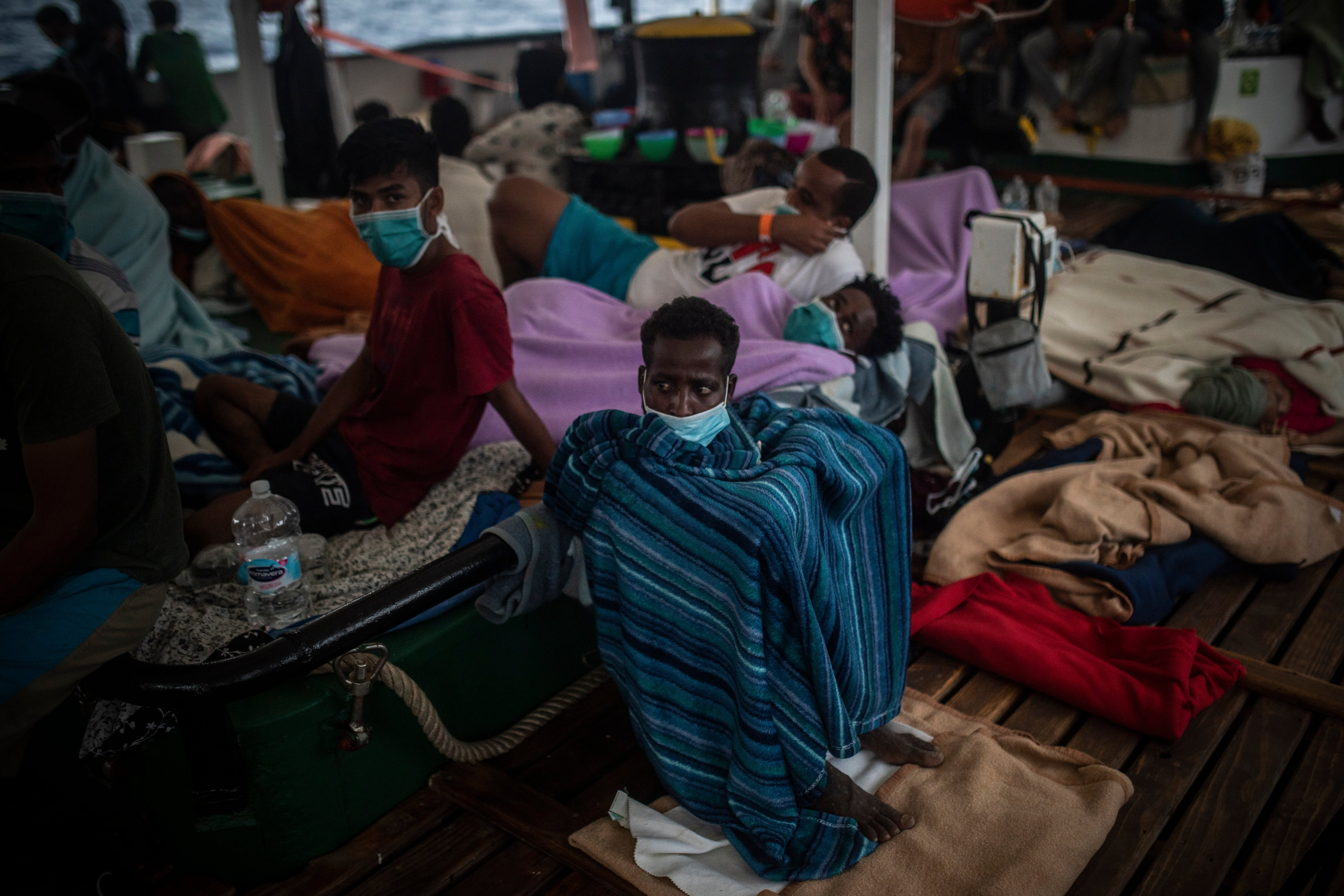Evacuation of refugees trapped in war-torn Libya has fallen by nearly 90 per cent this year compared to the whole of 2019, according to data from the United Nations, which warned global resettlement of asylum seekers was at a “record low”.
UN officials said coronavirus travel restrictions have halted resettlement programmes, stranding tens of thousands of the world’s most vulnerable people. Among the hardest hit are those trapped in war-wrecked Libya, where refugees risk kidnap, torture, enslavement, or being held in abusive government detention centres. Despite the dangers so far this year, UN officials say only 297 people have been safely removed from the country, and only 169 of those rehomed. Last year 2,260 individuals were able to leave Libya with the UN’s assistance, including 859 who were resettled and 1,410 who were evacuated.
“The numbers this year will be particularly low in comparison to the previous two years because of Covid-19 – not only because of the impact on departures from Libya but also on transit and receiving countries,” said Shabia Mantoo, the UNHCR’s spokesperson on resettlement. With travel restrictions tentatively lifting, she urged states to fulfil their pledges to take in some of the world’s most vulnerable.
The halt in evacuations has left asylum seekers like Mussa, a young Eritrean refugee who fled forced conscription and jail, fearing they’ll be killed in the fighting.
“We were trapped in the middle of the war and left without food and water,” he tells The Independent, describing the life in the squalid centres where he was crammed 20 to a tiny room.
He was smuggled into Libya in the spring of 2017 but was held by traffickers in Bani Walid, a town southeast of Tripoli, who tortured him for ransom for six months before he was transferred to Tripoli to board a dinghy to Europe.
The Libyan coast guard intercepted him and he was detained in Libyan government facilities. Despite being registered with UNHCR at the time, he was shuttled between five official detention centres including Abu Salim, in southern Tripoli.
“It was overrun by disease, there were airstrikes, bombing, but instead of evacuating us they just rotated us between detention centres depending on where the front line was,” he added.
He was eventually released from detention on the order of UNHCR, as the final facility where he was held was declared a military target as the civil war deepened around him.
Since then Mussa has been stuck in Tripoli, left at the mercy of heavily armed militias and smuggling gangs who prey on vulnerable migrants and refugees.
“Most refugees know the only option is the sea. More and more have been escaping via the Mediterranean to Europe because they lost hope in the UNHCR or other countries to save us,” he says, adding that he now lives in a one-room apartment with 10 other terrified refugees.
In fact, the International Organisation for Migration tells The Independent there has been a threefold increase this year in migrants and refugees crossing from Tunisia and Libya to Europe via rickety boats and dinghies.
Many attribute the surge in illegal crossings to the deteriorating conditions in north Africa and the lack of legal routes amid a fall in voluntary repatriation, resettlement and evacuation flights due to Covid-19. In fact, the grounding of flights and closure of borders worldwide has meant that globally only 10,304 refugees in 2020 have been resettled with the help of the UNHCR, in comparison to nearly 64,000 refugees successfully resettled during the whole of 2019.
Even though travel restrictions have lifted, the UN fears that tens of thousands of refugees across the world will remain stranded as few countries have resumed their programmes.
“2020 is a record low for resettlement departures in recent memory,” the UNHCR’s Shabia Mantoo told The Independent. “It’s extremely worrying that such a low number have been able to depart this year. We still have a few more months of 2020, we hope to see an uptick in departures,” she added.
The UN is also concerned that the number of resettlement places pledged this year, around 50,000, is significantly less than last year, and woefully low in comparison to the estimated 1.4 million refugees across the world that it believes need to be resettled.
“We need states to increase the number of resettlement places. Wars and persecution haven’t stopped. We need more support for these pathways,” Ms Mantoo continued.
But instead of providing safe legal routes, countries like the UK have come under fire for not fulfilling their promises for this year.
The Independent reported this month that there are at least 600 refugees, who were supposed to be rehoused in the UK that are now trapped in “unsafe situations” in host countries. Their arrival remains blocked after Britain’s resettlement scheme was paused in March and never resumed.
We were trapped in the middle of the war and left without food and water
The Home Office did not respond to specific questions about the resettlement of refugees from different war-torn countries like Libya. A spokesperson said: “We resettle more refugees than any other country in Europe and are in the top five countries worldwide. Since September 2015, we have resettled more than 25,000 vulnerable refugees, with around half being children.”
But for those languishing back in Tripoli, refugees fear countries closing their doors at such a difficult time amid the pandemic that has made 2020 the worst year yet.
“We are suffering more than any time before and are desperate,” Mussa said, sharing photos of friends who have been killed in Libya. “We have lost all hope, and all we can do is try our luck at sea.”





Join our commenting forum
Join thought-provoking conversations, follow other Independent readers and see their replies
Comments